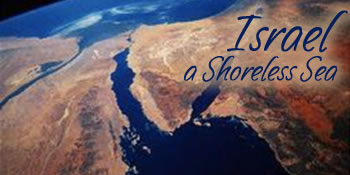
Before I left Chicago, the art critic Harold Rosenberg said to me, "Going to Jerusalem? And wondering whether people will talk freely? You've got to be kidding, they'll talk your head off." He spoke as a Jew to a Jew about Jewish powers of speech. In flight, if the door of your plane comes open you are sucked into space. Here in Jerusalem, when you shut your apartment door behind you you fall into a gale of conversation - exposition, argument, harangue, analysis, theory, expostulation, threat, and prophecy. From diplomats you hear cagey explanations; from responsible persons, cautious and grudging statements rephrasing and amending your own questions; from parents and children, deadly divisions; from friends who let themselves go, passionate speeches, raging denunciation of Western Europe, of Russia, of America. I listen carefully, closely, more closely than I've ever listened in my life, utterly attentive, but I often feel that I have dropped into a shoreless sea.
The subject of all this talk is, ultimately, survival - the survival of the decent society created in Israel within a few decades. At first this is hard to grasp because the setting is so civilized. You are in a city like many another - well, not quite, for Jerusalem is the only ancient city I've ever seen whose antiquities are not on display as relics but are in daily use. Still, the city is a modern city with modern utilities. You shop in supermarkets, you say good morning to friends on the telephone, you hear symphony orchestras on the radio. But suddenly the music stops and a terrorist bomb is reported. A new explosion outside a coffee shop on the Jaffa Road; six young people killed and thirty-eight more wounded. Pained, you put down your civilized drink. Uneasy, you go out to your civilized dinner. Bombs are exploding everywhere. Dynamite has just been thrown in London; the difference is that when a bomb goes off in a West End restaurant the fundamental right of England to exist is not in dispute.
Yet here you sit at dinner with charming people in a dining room like any other. You know that your hostess has lost a son; that her sister lost children in the 1973 war; that in this Jerusalem street, coolly sweet with night flowers and dark green under the lamps, many other families have lost children. And on the Jaffa Road, because of another bomb, six adolescents - two on a break from night school - stopping at a coffee shop to eat buns, have just died. But in the domestic ceremony of passed dishes and filled glasses thoughts of a destructive enemy are hard to grasp. What you do know is that there is one fact of Jewish life unchanged by the creation of a Jewish state: you cannot take your right to live for granted. Others can; you cannot. This is not to say that everyone else is living pleasantly and well under a decent regime. No, it means only that the Jews, because they are Jews, have never been able to take the right to live as a natural right.
To be sure, many Israelis refuse to admit that this historic uneasiness has not been eliminated. They seem to think of themselves as a fixed power, immovable. Their point has been made. They are a nation among nations and will always remain so. You must tear your mind away from this conviction, as you must tear it from "civilized" appearances, in order to reach reality. The search for relief from the uneasiness is what is real in Israel. Nationalism has no comparable reality. To say, as George Steiner says, that Zionism was created by Jewish nationalists who drew their inspiration from Bismarck and followed a Prussian model can't be right. The Jews did not become nationalistic because they drew strength from their worship of anything resembling Germanic Blut und Eisen but because they alone, amongst the people of the earth, had not established a natural right to exist unquestioned in the lands of their birth. This right is still clearly not granted them, not even in the liberal West.
At the same time Jews are called upon and call upon themselves to be more just and more moral than others.
Novelist, playwright and essayist Saul Bellow was awarded the Nobel Prize for Literature in 1976. Born in Montreal in 1915, he is the author of more than a dozen books and plays, including The Adventures of Augie March and Herzog. This excerpt is from To Jerusalem and Back: A Personal Account by Saul Bellow.

